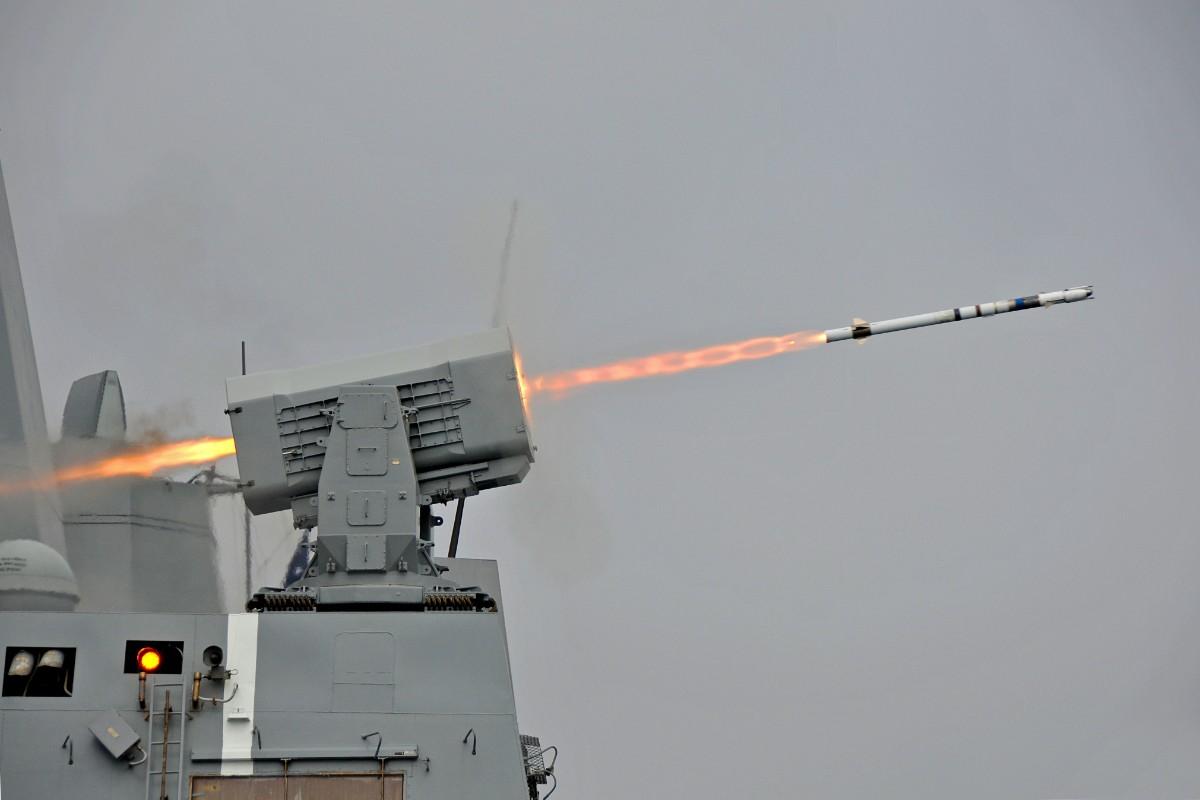Introduction:
In 1945, the United States bombed two Japanese cities: Hiroshima and Nagasaki with a destructive weapon known as The Atom Bomb (Fat Man and Little Boy). This unprecedented act of atomic bombing brought about the subtle end of World War II; however, it made the world witness the horrors of an atom. The horrific effects and after-effects of this deadly weapon caused serious concerns among the global powers about the potential risk of intentional or accidental use of this powerful weapon. Thus, it created an urge among the world leaders to sit together and pen down a treaty to prevent the nuclear arms race and the misuse of nuclear energy. Hence, in 1968 a treaty named as Non-proliferation Treaty (NPT) was opened for signature, and then early in 1970, it was entered into force. Although the Nonproliferation Treaty gained success in its initial goal and proved as a key player in the prevention of the proliferation of nuclear weapons it was predicted in 1960 that by the end of the 20th century, the world would have 20-30 more Nuclear weapon states, whereas there are only 4 new Nuclear Weapon states. However, the ambiguous nature of the Nonproliferation Treaty is providing room for states to exploit it for their political ambitions and thus prevents the treaty from reaching at its ultimate goal: disarmament. This article illuminates that how states are exploiting the loopholes present in the treaty and thus making the treaty vulnerable. Moreover, this article focuses on that how the actions of states are indirectly breaching the Nonproliferation Treaty and thus setting a precedent for other states to follow which will make the disarmament goal impossible to achieve.
- Unaccomplished goal of Disarmament:
The NPT’s objective of ultimately achieving general and complete disarmament is under question mark. Non-nuclear weapon states argue that the treaty is discriminatory as it is only preventing horizontal proliferation whereas nuclear weapon states are vertically proliferating their nuclear arsenals with no defined limits. Therefore, this nuclear apartheid is the major obstacle in building a pathway to achieve the ultimate goal of disarmament. India debates that the present form of NPT is unfair and called it a nuclear apartheid providing the traditional stance that either P5 states denuclearize, or every state must have the same right to possess nuclear weapons.
- Uranium deal between India and Australia:
A civil nuclear cooperation agreement, signed between India and Australia, authorize India to buy uranium from Australia for the peaceful use of nuclear energy. The agreement says that Australia will provide long-term uranium supply to India which will promote cooperation in the field of peaceful use of nuclear energy. According to the agreement, the purchased uranium will be under IAEA safeguards to prevent its diversion from peaceful use to the weapon’s purpose. However, the uranium supplied to India is technically making India’s domestic uranium accessible for the production of nuclear weapons, as it is known that not all nuclear facility in India is under IAEA safeguards. As the main purpose of the treaty is to stop proliferation this agreement in turn is paving way for the potential vertical proliferation.
- AUKUS and its non-proliferation implications:
AUKUS is a triangular security agreement between the United States, United Kingdom, and Australia announced in 2021 on September 15 to enhance security in the Indo-Pacific region. AUKUS focuses on strengthening the diplomatic and defense ties between the three states: United States, United Kingdom, and Australia. The first project of AUKUS is to provide Australia with a fleet of a nuclear-powered submarine which will greatly benefit the Australian navy. Article 3 of NPT confines the non-nuclear weapon states party to the treaty to accept IAEA safeguards on the peaceful nuclear facility to prevent its diversion from peaceful to the weapon’s purpose. However, this agreement has non-proliferation implications. For the operation of naval propulsion reactors for nuclear-powered submarines, Australia has to remove its nuclear facility from the IAEA safeguard system. The reason that IAEA safeguards have limitations, they cannot safeguard naval reactors because the locations of submarines are always kept confidential. According to the NPT, non-nuclear weapon states are not under any obligation to not construct nuclear-powered submarines for peaceful purposes but because the IAEA inspection system cannot safeguard naval reactors, thus it provides some room for nuclear proliferation. This situation caused serious concerns that by operating nuclear-powered submarines and by removing its nuclear facility from the IAEA inspection system, Australia will be the first state to avail benefit from this loophole, thus it will set a precedent for the would-be proliferators which will be proved extremely damaging and can create a spillover effect. Any state with an ambition of developing its nuclear program can use this precedent as an excuse. Would-be proliferators will have the option to use the naval reactor program as an excuse under which they can carry their nuclear weapon program because now their nuclear facility will be freed from IAEA safeguards. In 2018, Iran’s ambition was to develop naval nuclear propulsion and Iran informed IAEA about this plan. But if Iran had carried this ambition that would have created an aggressive backlash from the international community. Therefore, Australian possession and operation of nuclear-powered submarines will remove the deterrent value by lower the cost of acquiring them, and it will be relatively easy for the states like Iran to build or operate nuclear-powered submarines.
- Export control regimes violate NPT:
Article 4 of NPT talks about the inalienation right of every state to exercise full use of peaceful nuclear energy and that the states party to the treaty should go for the fullest possible exchange of peaceful nuclear usage, especially with the non-nuclear weapon states. Thus, referring to the consensus nature of export control regimes any member state can hold other states from getting the nuclear material or technology for peaceful purposes, thus affecting the article 4 of NPT.
- Ukraine war and its implications on NPT:
Ukraine war also has some grave repercussions on the Non-proliferation treaty. After the disintegration of the Soviet Union, the newly founded state of Ukraine has nuclear weapons stationed on its territory inherited from the Soviet Union. But Ukraine signed NPT and gave all of its nuclear weapons by declaring its territory as a nuclear-weapon-free state. In return for denuclearization, United States, Britain and Russia gave Ukraine additional security assurances. But all these security assurances have proved to be negative following the Russian aggressive invasion of Ukraine. Russian invasion has severe implications for a treaty by giving an impression that NPT is just meant to give room to nuclear weapons states to grow their power and to leave weaker states defenseless. Hence, the security assurances provided to Ukraine, as an exchange for its nuclear weapons, were negative, therefore, it will compel other states to go for self-help mechanisms which can eventually lead to nuclear proliferation.
At the start of the war, Vladimir Putin blatantly announced that Russia’s nuclear forces are alert, thus, Russia’s nuclear threat is causing direct and grave implications to the Non-proliferation treaty.
Conclusion:
Although the Non-proliferation treaty has succeeded to constrain the horizontal proliferation of nuclear weapons till now the discriminatory nature of NPT is the major reason why the world is seemingly not going towards general and complete disarmament. In my opinion, the NPT is kept ambiguous by world powers on purpose to exploit it when needed. The loopholes explained in the main body of this paper are giving the global powers room to exploit the treaty for its benefits. Thus, the treaty works in a way that the power is accumulating in the hands of major powers and leaving weaker states defenseless, the contemporary example of this is the Ukraine war. Ukraine war has set a precedent for other states to not trust the false promises of the major powers and that their security pledges are nothing but negative security assurances. On the other hand, the AUKUS agreement depicts that the United States, for its hegemonic benefits aiming to offset the growing power of China in Asia-Pacific, has exploited the loophole present in the IAEA safeguards and thus has created a precedent for other states to follow. But if Iran will try to build a nuclear-powered submarine, it will have to face severe backlash from the international community. The non-nuclear weapon states are the real victims of this nuclear apartheid, as nuclear weapon states are benefiting from both peaceful and non-peaceful usage of nuclear energy, the export control regimes have made the access to peaceful nuclear technology and material even more complicated for non-nuclear weapon states. Therefore, the developed states are becoming more advanced and in the name of “NON-PROLIFERATION”, developing countries are the ones suffering. Moreover, major powers are not pursuing the ultimate goal of NPT: “DISARMAMENT”. They are the ones promoting vertical proliferation by extending their nuclear arsenals.
In conclusion, Global powers must start the process of disarming themselves if they want to follow the Nonproliferation Treaty in its true spirit. Moreover, the loopholes in Nonproliferation Treaty must be confronted, and make sure that the stake of exploiting NPT would be high. NPT will be succeeded the day when its prime objective of disarmament will be achieved. To achieve this goal the ambiguous nature of NPT must be eliminated. Agreements like AUKUS and Uranium deal shall be formed in compliance of the Nonproliferation treaty. For examples, instead of using high enriched uranium Australian nuclear-powered submarines should use low enriched uranium, as low enriched uranium cannot be directly used in nuclear weapons. Therefore, removing LEU from safeguards will not be as worse as removing HEU. On the other hand, Australia before providing uranium to India must compel it to accept safeguards on its whole nuclear facility. Hence, strict measures must be taken to eliminate any risk of breach of the Nonproliferation Treaty. Again, major power must not set a precedent of exploiting the loopholes of Nonproliferation Treaty because the other states will follow and the ultimate goal of disarmament will just remain a dream, leaving the planet in the hands of unimaginable deadly weapons.
Author: Faiqa Ishaar is a student of Strategic Studies at National Defence University, Islamabad. Her areas of interest cover nuclear non-proliferation, arms control, and disarmament.
- Global Defense Insighthttps://defensetalks.com/author/umair/
- Global Defense Insighthttps://defensetalks.com/author/umair/
- Global Defense Insighthttps://defensetalks.com/author/umair/
- Global Defense Insighthttps://defensetalks.com/author/umair/













